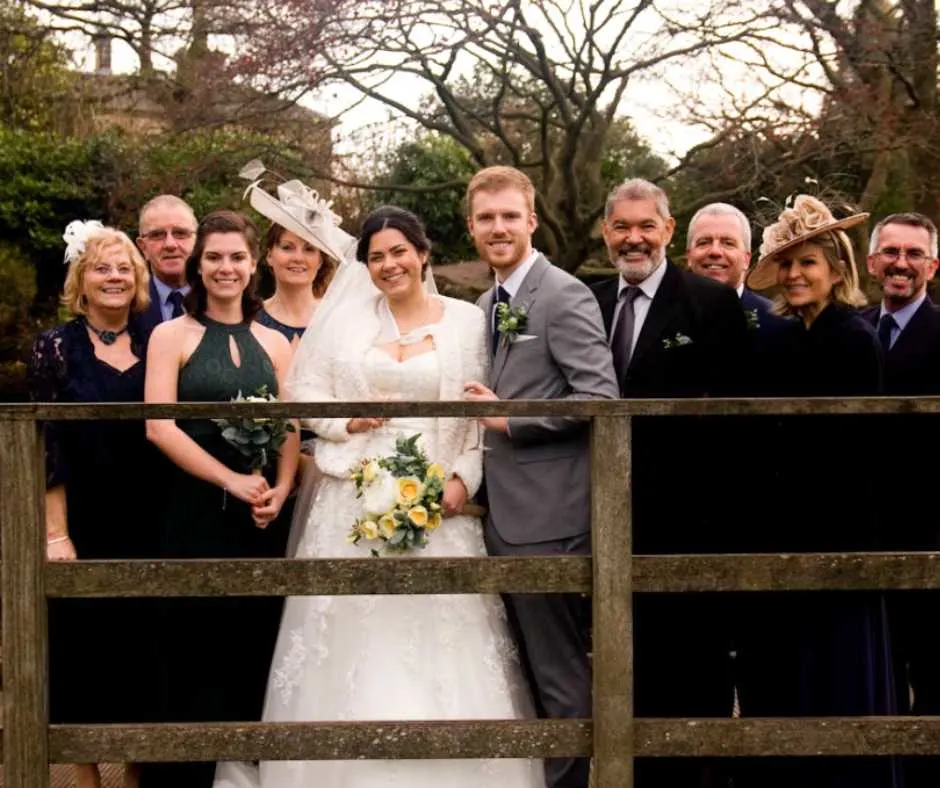When you marry, you’ll likely have to interact with your in-laws, even the toxic ones.
Since your spouse probably loves their family, you’ll need to find a way to get along with them.
Meanwhile, after marriage, you could also encounter surprises with your partner and their family, who seem different.
This is common as time together unveils more about each other.
Having challenging in-laws doesn’t mean your marriage is doomed.
How do in-laws affect your relationship?
Family dynamics influence our well-being. Positive relationships benefit us, but challenging ones cause stress.
Strained relationships with your spouse’s family can harm marriages, even strong ones.
Therapist Billie Tyler warns about signs of in-law impact.
“If most of the discussion between a couple is spent arguing or even just talking about parents, it is probably causing strain on the relationship,” she said, adding that Feeling anxious or fearful about interactions with in-laws can strain the relationship, per BRIDES.
This discomfort might lead to avoiding the topic entirely, which can also be damaging.
What if you have toxic in-laws?
Family dynamics vary depending on closeness. Dealing with disrespectful in-laws can be tough, but with smart handling, it’s possible to find peace and have a fulfilling marriage.
Remember, there’s always a solution to problems.
By setting boundaries with them, you can demand respect without compromising your dignity.
Meanwhile, here are some things you can do if your in-laws are rude to you:
1. Face the problem
Ignoring issues with your spouse’s family leads to more problems.
Tyler suggests facing discomfort and understanding their perspective.
Empathy and curiosity are vital for harmony. Understanding each other allows for flexibility and positive change in relationships.
2. Set boundaries
Setting boundaries early on is vital for peace and well-being.
When in-laws or others have too much freedom, problems can escalate.
Show your true self and communicate your limits clearly to your partner and their family.
Assertively standing your ground without being disrespectful is key.
Establishing boundaries with in-laws and your partner is crucial for a peaceful life with fewer challenges.
3. Don’t face it alone
When facing difficult in-laws, you and your spouse must support each other and maintain open communication.
Tyler advises couples to unite and decide how to handle the in-laws’ role in their relationship.
Handling issues with your spouse’s family alone can harm your relationship.
Avoid complaining about them to your spouse. Instead, honestly share your feelings when your partner is receptive.
After all, your spouse may have better strategies for dealing with their family, saving you from unnecessary stress.
4. Avoid negative reactions
When your in-laws offend you, avoid retaliating to prevent the situation from escalating.
Rather than reacting immediately, take time to cool off before addressing the issue, whether hours or days.
This lets everyone calm down and leads to a more productive conversation later.
5. Seek professional health
When faced with toxic in-laws, seeking guidance from professional counselors or therapists is recommended.
They offer effective strategies to manage the situation and prioritize your well-being.
It’s important to recognize underlying issues or health problems that may contribute to their behavior.
Involving your spouse and encouraging their parents to attend counseling or therapy can help address the root causes of their toxic behavior and facilitate positive change.
6. Distance yourself from your in-laws
Keeping a safe distance is an option if dealing with disrespectful in-laws becomes difficult despite efforts, according to Marriage.com.
Minimize solo interactions, preferring meetings in the presence of your spouse or others. Respectfully prioritize your mental well-being and dignity.
If necessary, distance yourself to maintain your mental balance.
What’s the best response to rude in-laws?
While it’s generally wise to avoid people-pleasing, etiquette expert Sara Jane Ho advises differently for holiday gatherings at your in-laws’ house.
If faced with insults, she suggests agreeing and playing along with a smile, CNBC noted.
Your partner should handle their parents
According to Ho, it’s not your role to reprimand your spouse’s family for rudeness.
“If you want to piss off your in-laws, let your spouse do it, not you,” she says.
It’s best to stay agreeable in the moment and let your spouse address inappropriate comments.
This approach applies to both your spouse’s family and your own.
Each partner should manage their own family, as Ho recommends.
Meanwhile, Ho suggests staying silent if smiling and agreeing isn’t suitable.
She believes that sometimes, the best response to rudeness is silence, letting the other person wallow in misbehavior.
“The greatest power is showing that the other person doesn’t have power over you,” Ho says.
Family conflicts can be stressful, especially when caught between your spouse and in-laws.
Dealing with difficult in-laws is challenging but feasible.
To preserve sanity, prioritize open communication, boundary-setting, and taking deep breaths.
Here’s a video of Relationship Theory, talking about how to deal with disrespectful in-laws:
Discover more from My Positive Outlooks
Subscribe to get the latest posts to your email.












